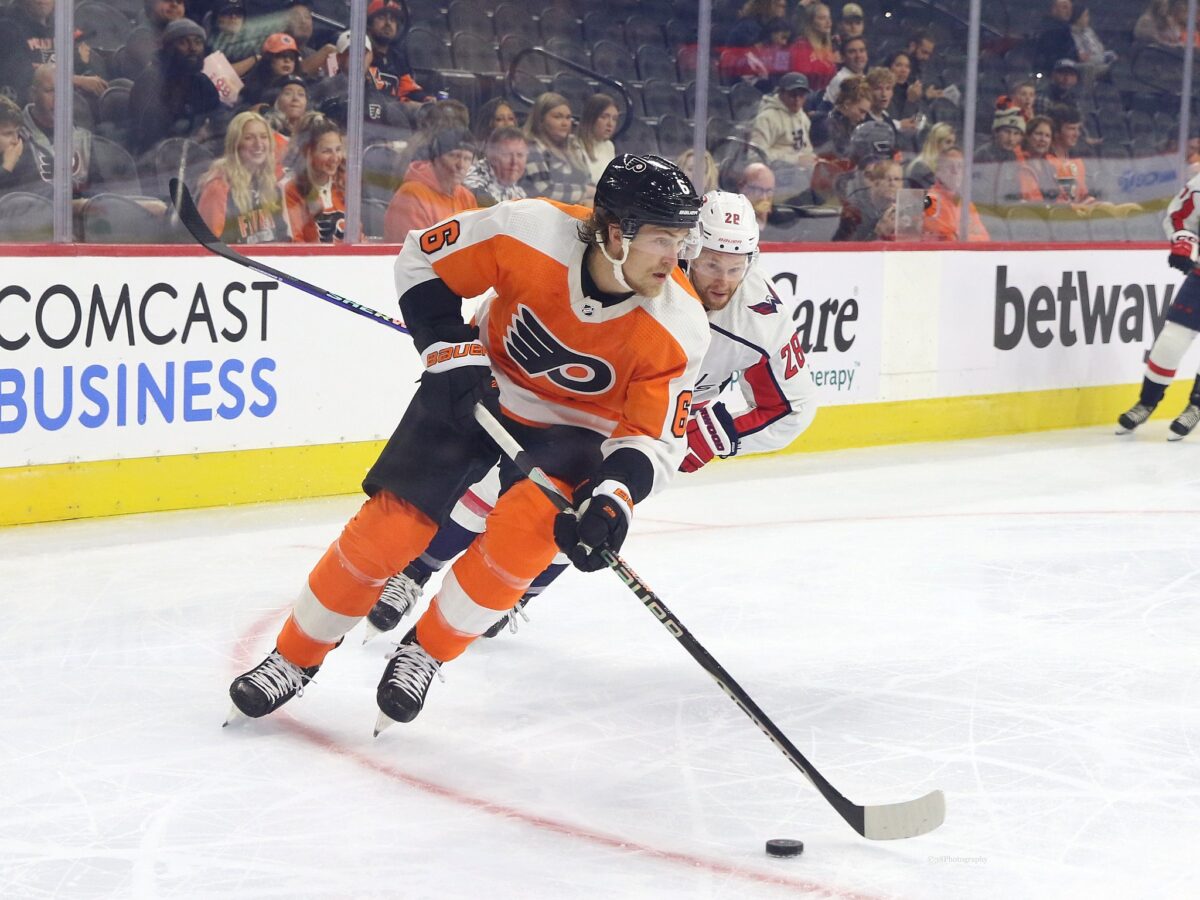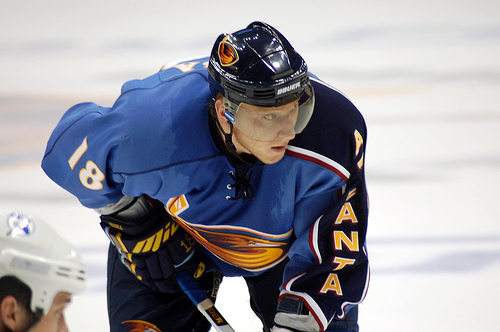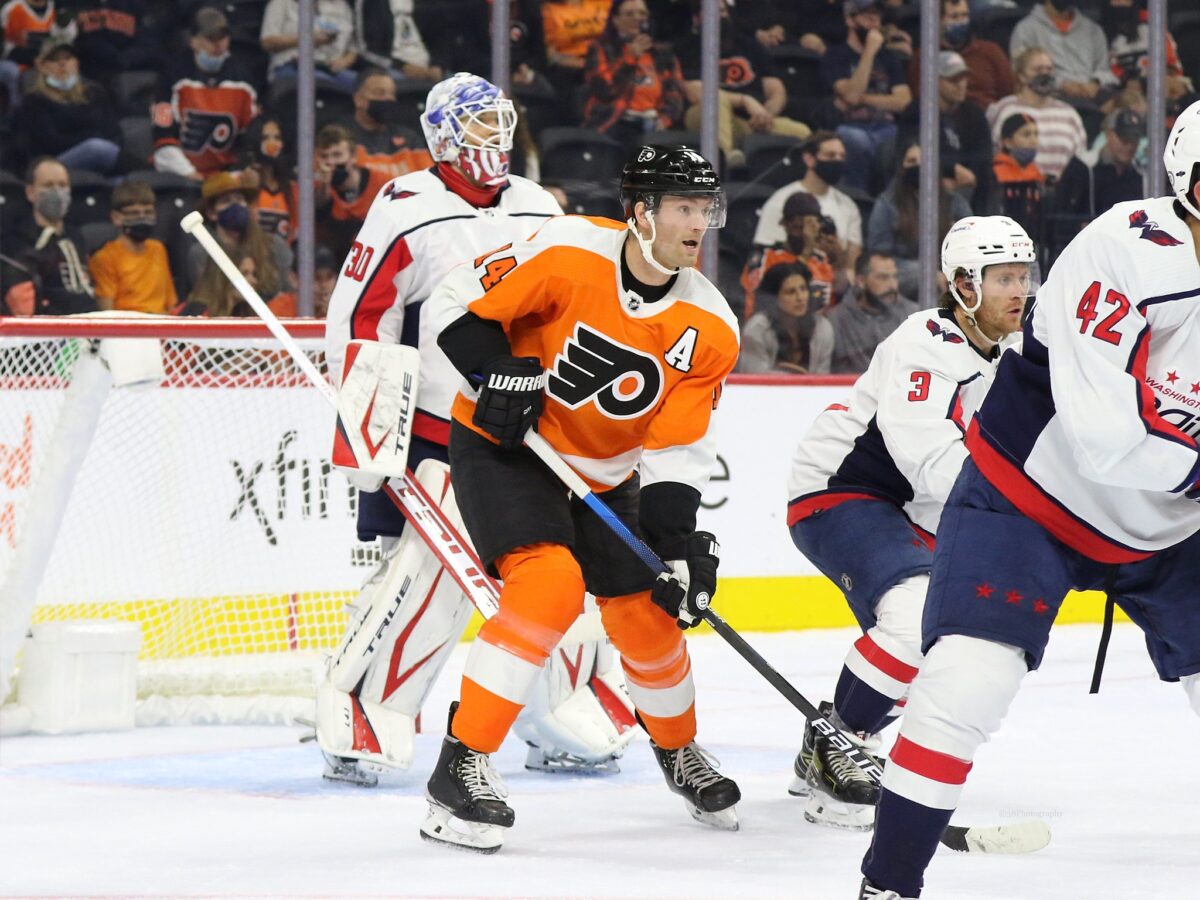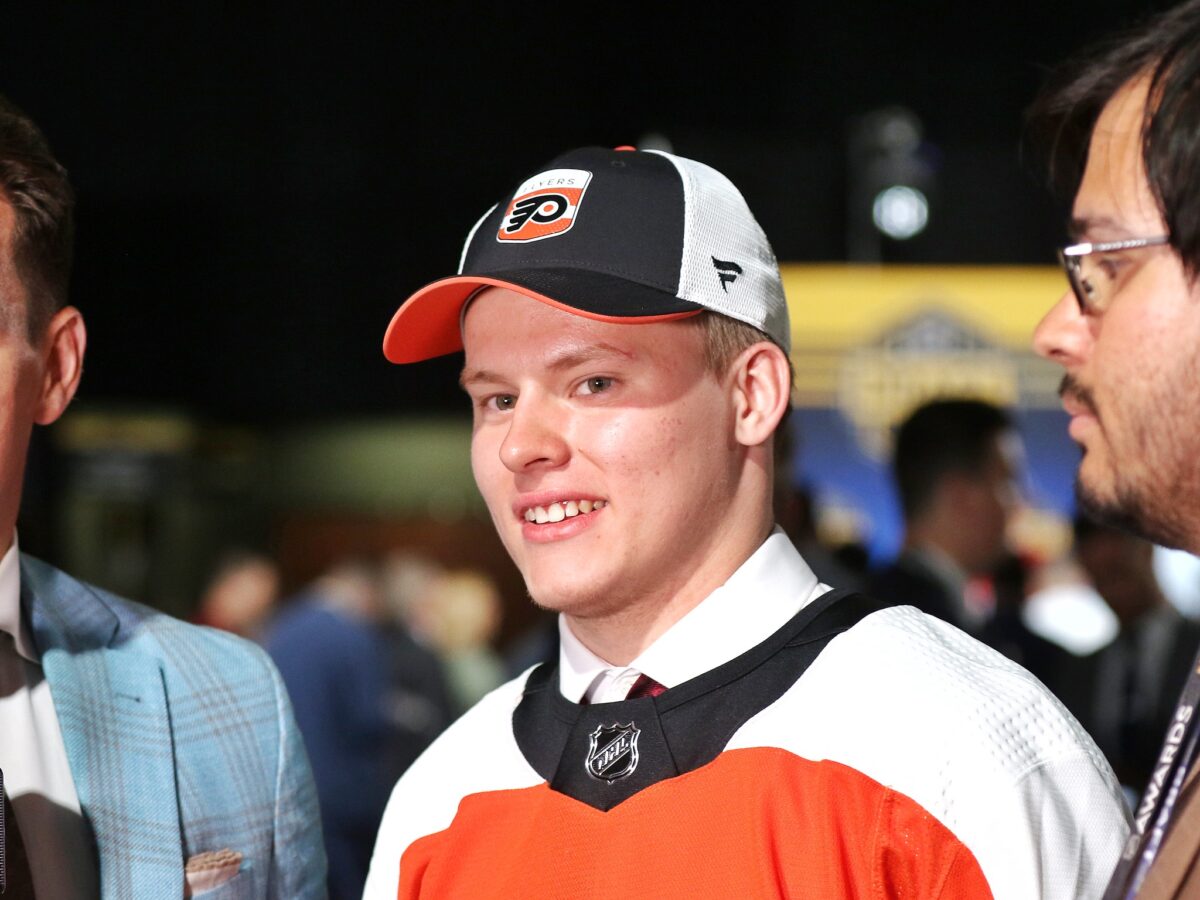Since the Philadelphia Flyers are in a rebuild, it might seem like common sense that the best-case scenario for them is to have a bad season and get a higher draft pick. If the Flyers have zero expectations of winning the Stanley Cup, what is the point of playing well?
It could be argued that the worst thing that could happen to Philadelphia is them struggling and finishing with an awful record. Instead of regression, the team needs progression. What is the rationale behind their failures being undesirable?
Draft Position Is Virtually Meaningless
A big reason why teams want to rebuild is that they can get franchise players through the draft. Almost every single team that has won a Stanley Cup in the salary cap era starting after the 2004-05 lockout season has had a player drafted within the first two picks. However, not only does having a bad season go into this, but an extraordinary amount of luck does, too.

Oftentimes, the Flyers have not had great luck selecting with a high pick in the draft. While the team’s new regime should not be compared with those in the past, it is still true that it really hasn’t mattered where the Flyers have picked. When the team had the worst season in their history in 2006-07, they were due to have a shot at getting Patrick Kane with the first-overall pick in the draft that year. Unfortunately, they were not the winners of the draft lottery and settled with James van Riemsdyk, a move that the Flyers didn’t really benefit from even when they shipped him to Toronto when he was still just 23 years old.
In the 2021-22 NHL season, the Flyers finished just a single point ahead of the Seattle Kraken with the fourth-worst record in the league. The draft lottery slotted them a pick behind where they were slated to draft, with the fifth-overall selection. This seems like a disaster, but the Flyers’ pick of Cutter Gauthier is looking like the best thing that could have happened to them, with him being ranked as the ninth-best prospect in the league according to NHL Network.
Related: Flyers’ Matvei Michkov Will Be an Immediate Star in the NHL
In the 2022-23 season, the Flyers actually improved their record by 14 points in a draft that had some of the best high-end talent ever seen. Surely, a seventh-place finish would be disastrous for the rebuild and make their season meaningless, even though they had several players improve from the season before. Once again, their finish in the standings meant virtually nothing, as they were able to select Matvei Michkov, who some regarded as the second-best prospect in the entire draft.
It won’t really make a difference whether the Flyers select with the fourth-overall pick or at eighth in the draft. With the team having a 25.5 percent chance of getting the best pick in the draft, even if they finish with the worst record, having a dreadful season that could harm development does not have adequate benefits.
Failure Would Hinder Trade Value
If the Flyers were to have a bad record, that would likely mean that many players struggled to produce along the way. In addition, that would leave the team with some players who regressed from their 2022-23 campaign to 2023-24. With buyers in the offseason always being aggressive, losing value would be a detriment to the Flyers’ rebuild.

Only a year ago, the inclusion of Owen Tippett in the Claude Giroux trade was really nothing more than a throw-in for Florida. Sure, he had some value, but a 22-year-old whose career-high in points was just 21 doesn’t generally project to be a top-six forward. Nevertheless, the forward became one of Philadelphia’s best players under head coach John Tortorella, and he could either be due for an extension after his contract expires following the 2023-24 season or be traded and get a haul in return. With the potential to score 30 goals and over 60 points this season, regression could only be a bad thing. Not only would it hinder his value to the team, but it would diminish any trade value as well.
A player like Travis Sanheim is due for improvement, too. Last season, the Flyers were in discussions about shopping him but ultimately chose against it. Having arguably the worst season of his career in 2022-23, this was probably the smart choice. If he improves, the Flyers would be looking at a significant package in return. A team like the Arizona Coyotes, who project to have over $38 million in cap space in 2024-25 as it stands, would likely be in the market. If he were to have a good season and the Flyers win a few more games than fans were expecting, this would be beneficial.
Blowing Up a Team Historically Doesn’t Work
Although there are some teams that trading everyone away has worked for, if the Flyers were forced to sell several players on the roster in order to go in a different direction, they would be joined by some company that they don’t necessarily want to be grouped with.

While the situation of the Atlanta Thrashers went far beyond selling many of the star players on their roster for a minimal return, it certainly didn’t help. The Thrashers’ failures went beyond trading stars like Ilya Kovalchuk, Marc Savard, and Marian Hossa, but this didn’t help. Having stars helps young depth players improve their game. If every good player is sold, it would put prospects in a tough spot to win right away.
A philosophy centered around trading several players and having a team that is essentially guaranteed to finish in the league’s basement is what partially led to the Buffalo Sabres’ extended rebuild. If they can, the Flyers will have to withhold from trading everyone on the roster. If the team loses too many games, getting anything they can in terms of trade value might be unavoidable.
Flyers Selling Low Would Stall Rebuild
If the Flyers were in a situation where their best course of action would be to sell their players for low value, it would potentially stall their rebuild for several years. A bad record would likely correspond with some underachievers, so they wouldn’t be getting as much value as they could.

Sean Couturier, who has seven years left on his $7.75 million cap hit contract, would return an incredible haul if traded when he was on his game. If he can show that he is still a Selke Trophy type of player, the Flyers would be set up for a speedy rebuild. If not, and they sold him for cheap, they’d be looking at a much longer process. If they had to sell Sanheim for low because he had another underwhelming season, this would also harm the team. The Flyers need their individual players to perform now if they want to maximize success in the future.
Flyers Need to Remain a Desirable Destination
A big reason why the Flyers were able to draft Michkov was because of their standing as a respectable franchise. A player like him under Kontinental Hockey League (KHL) contract through the 2025-26 season controls his own destiny, so he can choose to not play for a franchise if they draft him. If he was concerned about the Flyers being able to win, he could have easily refused getting drafted. In order to land good players, a team must be respectable.

By the latter end of the club’s rebuild, the Flyers might want to take a big swing at a free agent. Even if they have the cap space, a player is entitled to choose where they sign. With dollar amounts for them typically being around the same, the Flyers would have to set themselves apart. Being an annual basement team would not help this, and it’d also be a less-than-ideal place for players to get drafted as well.
It might be a bit unlikely for everything to fall apart for the Flyers, but it is a legitimate possibility. If it occurs, the team would be in a difficult position, and it would change their overall outlook. This might seem like it is a good thing, as rebuilding teams are generally built to lose, but it could actually be a calamity.